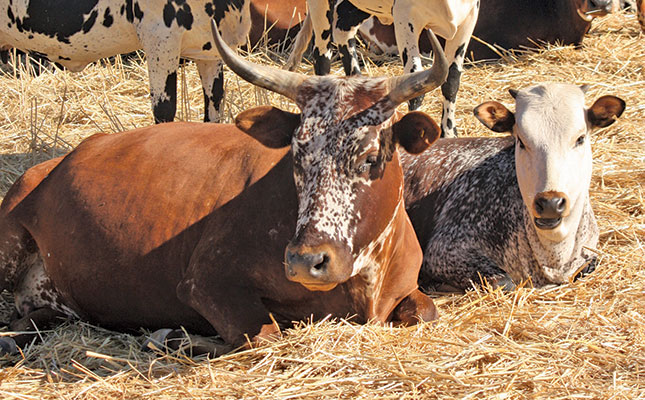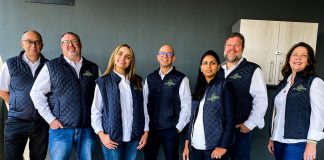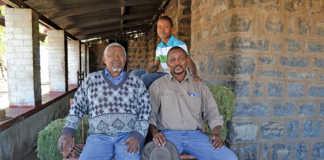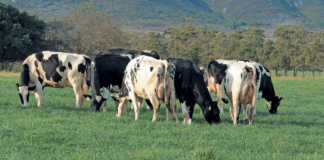
Photo: Denene Erasmus
What direction will NERPO take over the next 10 years?
In January 2017, at NERPO’s 50th National Executive Council meeting, we declared that we would do things differently. The reason is we are now operating in a totally different political, economic and socio-economic environment than when the association was formed 22 years ago. We realised it was time to adapt to these changes.
Our approach now is to shift the focus from advocating for policy reform to implementing the policies we’ve helped shape by driving development of smallholder farmers through a market-driven strategy.
The core change we’re looking into is how we use technology; we need to be agile if we want to survive. Our government is talking about the Fourth Industrial Revolution, but in many instances, our members are still operating according to the principles of the First Industrial Revolution.
Also, from an organisational point of view, running unions or farmers’ organisations the traditional way is not effective. We’re now looking at an ‘e-farmers’ organisation’ that connects people online. Because of the technological advances in communication, we’ll have to have e-conferences and e-meetings.
This is also driven by the economic climate. In future, no one will fund conferences and meetings.
Institutions that used to support us, such as banks, no longer have the money for this funding, which means we’ll have to think of innovative ways of reducing costs in our day-to-day operations, and in how we share information with our members.
How does NERPO plan to assist farmers to move into this space? Are the farmers you represent ready for the changes that will be brought about by the Fourth Industrial Revolution?
Everyone will have to get on board with the new technology. We can’t use the excuse that
some people are not there yet or don’t have access to, or can’t use, this technology. If you don’t adapt, the opportunities will pass you by. Everything is happening online.
What are the major challenges facing livestock farmers, both smallholder and commercial, in South Africa?
The biggest challenge to us is climate change. It’s forcing all livestock farmers to put their hands deep into their pockets, because livestock can no longer depend on natural grazing only, but require bought-in supplementary feed.
Due to more frequent droughts, we can expect to see a situation where livestock farmers will, for the first half of the year, make use of natural grazing, and in the second half, feed their animals intensively.
Large parts of South Africa are getting rain only for two months in the year. This means it’s up to farmers to ensure that their animals are in good condition and a marketable state.
Another challenge is disease outbreaks, which are sometimes linked to climate change.
During a drought, animals may have to walk long distances in search of water, and they sometimes break down fences. In the process, they can become infected by disease-carrying animals in affected areas.
How does NERPO assist with these challenges?
We advise our farmers on how to mitigate such challenges, for example, by establishing fodder banks, storing as much water as possible, avoiding overstocking, and keeping animals that can withstand tough conditions.
What successes have you recorded as an organisation?
We’ve been instrumental in influencing the policy position of government in terms of assistance being provided to our smallholder farmers.
By the same token, NERPO is making a contribution towards the blended finance policy and related programmes that assist farmers financially. What is required is to monitor and drive actual production and marketing by our members.
Since its inception, NERPO has been consistent in terms of lobbying for access to land, because it’s a fundamental in the farming sector. The land reform panel of experts, appointed by President Cyril Ramaphosa, recommended the same policy advice that we proposed 20 years ago.
However, implementation is still lacking; government needs to be assisted with this. Commodity associations really need to help government in implementing policies, programmes and projects, as this is government’s main weakness. It’s time to hold hands together with government to implement these policies.
Do you think transformation in the livestock industry is moving faster, and which part of the value chain still requires more transformation?
Transformation is extremely slow in our sector, especially throughout the value chain.
There are few black operators within the value chain operating on a big scale.
In fact, I haven’t seen any black operators in the input supply sector, such as manufacturers of farming equipment or fertiliser, feed and seed production.
The reason for this is that there’s no serious effort from our leadership, both political and administrative, to push transformation, as in other sectors. There’s a lot of talk
about it, but nothing is happening.
There’s still a lot of resistance from some of the leadership and big business, who are supposed to be supportive. Some even hate the word ‘transformation’ because it’s not a policy they embrace.
There are those who are genuine and willing to see transformation, and there are also those who do it because there is a stick.
What should be done to ensure that transformation happens?
There are two sides to transformation. On the one side, you have those in need of transformation, and on the other, there are those who need to take advantage of transformation policies to advance their own business interests.
Both parties should be keen and honest; if not, that’s when you find the window-dressing type of transformation.
To ensure that transformation happens, the red meat industry must establish a transformation vehicle or institution that will:
- identify development priorities for the emerging red meat sector across the value chain;
- raise funds from both the private and public sector to fund the identified transformation programmes and priorities;
- appoint service providers that will implement identified transformation projects; and
- monitor and evaluate transformation progress within the red meat industry.
Email Aggrey Mahanjana at [email protected].











